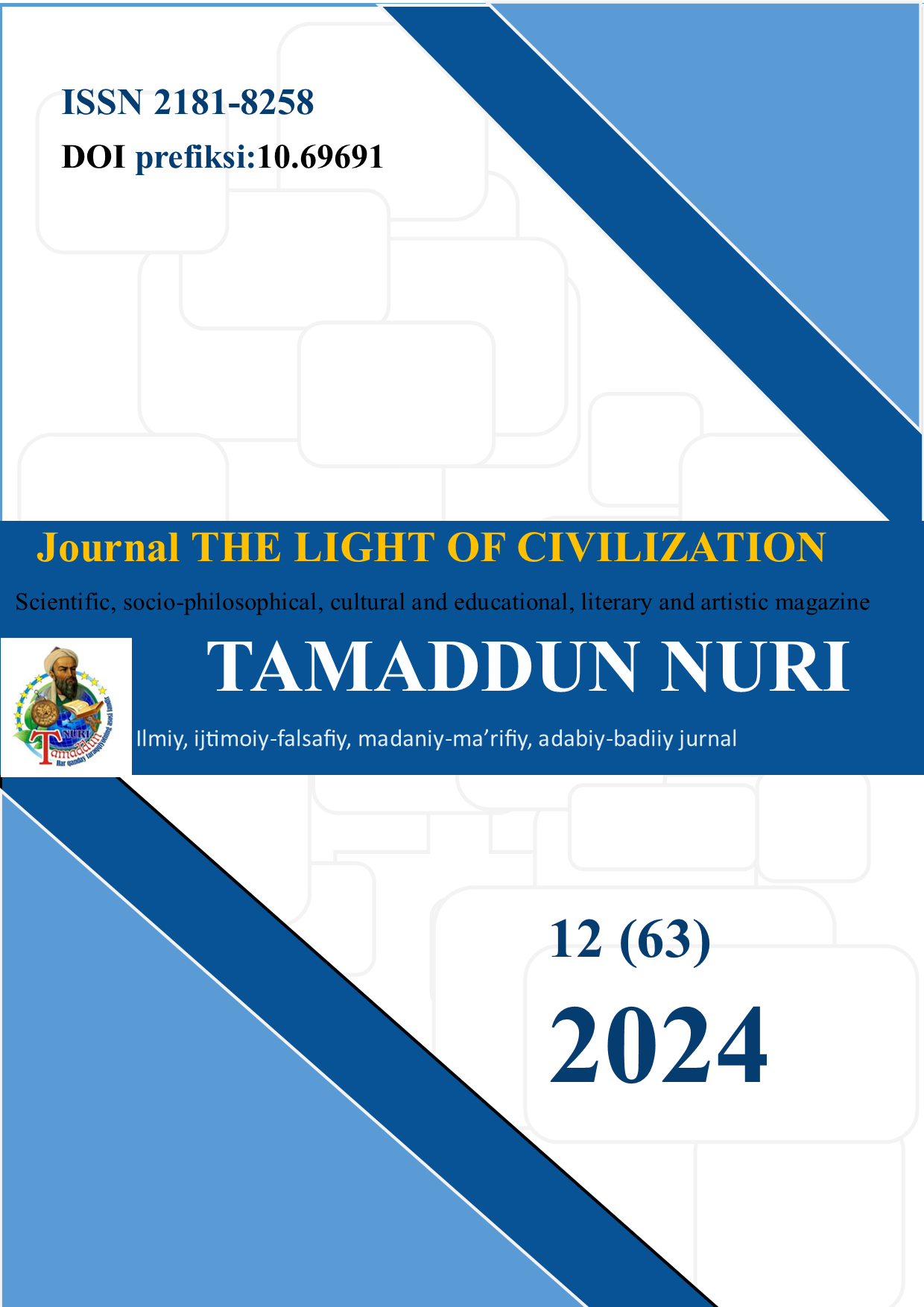ИНТЕГРАЦИЯ ИСКУССТВЕННОГО ИНТЕЛЛЕКТА (ИИ) В СИСТЕМУ ОБРАЗОВАНИЯ
DOI:
https://doi.org/10.69691/r1bx4f56Ключевые слова:
искусственный интеллект, образование, управление школой, учителя, методы, изучение языка.Аннотация
Поскольку исследования искусственного интеллекта (ИИ) в образовании продолжают расширяться, многие ученые предсказывают значительные изменения в ролях учителей, школ и руководителей образования. Это исследование направлено на изучение потенциальных результатов интеграции ИИ в образование и их последствий для будущего образовательных учреждений. Используя феноменологический подход, качественный метод исследования, исследование изучает точки зрения людей из разных секторов. Результаты показывают, что внедрение ИИ в образование принесет инновационные инструменты и преимущества для школ и учителей, но также создаст определенные проблемы.
Библиографические ссылки
Akgun, S., Greenhow, C. (2022). artificial intelligence in education: addressing ethical challenges in K-12 settings. AI Ethics, 2, 431–440. https://doi.org/10.1007/s43681-021-00096-7
Aleven, V., McLaughlin, E. a., Glenn, R. a., & Koedinger, K. R. (2016). Instruction based on adaptive learning technologies. In Mayer, R.E. & alexander, P.a., Handbook of research on learning and instruction, 522-560. ISBN: 113883176X
Baker, R.S., Esbenshade, L., Vitale, J., & Karumbaiah, S. (2022). Using demographic data as predictor variables: a questionable choice. https://doi.org/10.35542/osf.io/y4wvj
Black, P. & Wiliam, D. (1998). Inside the black box: Raising standards through classroom assessment. Phi Delta Kappan, 92(1), 81-90. https://kappanonline.org/inside-the-blackbox-raising-standards-through-classroom-assessment/
Black, P., & Wiliam, D. (2009). Developing the theory of formative assessment. Educational assessment, Evaluation and accountability, 21(1), 5-31. https://doi.org/10.1007/s11092-008-9068-5
Boden, M.a. (2018). artificial intelligence: a very short introduction. oxford. ISBN: 978-0199602919
Bozorboyev N. Y "Abdulla Oripov she'rlarida hissiy kechinmalar" “INTERNATIONAL CONFERENCE DEDICATED TO THE ROLE AND IMPORTANCE OF INNOVATIVE EDUCATION IN THE 21ST CENTURY 2022/2” openidea.uz
Bryant, J., Heitz,C., Sanghvi, S., & Wagle, D. (2020, January 14). How artificial intelligence will impact K-12 teachers. McKinsey. https://www.mckinsey.com/industries/education/ourinsights/how-artificial-intelligence-will-impact-k-12-teachers
Celik, I., Dindar, M., Muukkonen, H. & Järvelä, S. (2022). The promises and challenges of artificial intelligence for teachers: a systematic review of research. TechTrends, 66, 616–630. https://doi.org/10.1007/s11528-022-00715-y
Center for Integrative Research in Computing and Learning Sciences (CIRCLS). (2022, Feb.). From Broadening to empowering: Reflecting on the CIRCLS’21 Convening. https://circls.org/circls21report
Chen, C., Park, H.W. & Breazeal, C. (2020). Teaching and learning with children: Impact of reciprocal peer learning with a social robot on children’s learning and emotive engagement. Computers & Education, 150, https://doi.org/10.1016/j.compedu.2020.103836
Chen, G., Clarke, S., & Resnick, L.B. (2015). Classroom Discourse analyzer (CDa): a discourse analytic tool for teachers. Technology, Instruction, Cognition and Learning, 10(2), 85-105
Dieterle, E., Dede, C. & Walker, M. (2022). The cyclical ethical effects of using artificial intelligence in education. aI & Society. https://link.springer.com/article/10.1007/s00146-022-01497-w
Doewes, a. & Pechenizkiy, M. (2021). on the limitations of human-computer agreement in automated essay scoring. In Proceedings of the 14th International Conference on Educational Data Mining (EDM21). https://educationaldatamining.org/EDM2021/virtual/static/pdf/EDM21_paper_243.pdf
Englebart, D.C. (october 1962). augmenting human intellect: a conceptual framework. SRI Summary Report aFoSR-3223. https://www.dougengelbart.org/pubs/augment-3906.html
Ersozlu, Z., Ledger, S., Ersozlu, a., Mayne, F., & Wildy, H. (2021). Mixed-reality learning environments in teacher education: an analysis of TeachLivETM Research. SaGE open, 11(3). https://doi.org/10.1177/21582440211032155.
Mousavinasab, E., Zarifsanaiey, N., R. Niakan Kalhori, S., Rakhshan, M., Keikha, L., & Ghazi Saeedi, M. (2021). Intelligent tutoring systems: a systematic review of characteristics, applications, and evaluation methods. Interactive Learning Environments, 29(1), 142–163.
Загрузки
Опубликован
Выпуск
Раздел
Лицензия
Copyright (c) 2024 Журнал Тамаддун Нури

Это произведение доступно по лицензии Creative Commons «Attribution-NoDerivatives» («Атрибуция — Без производных произведений») 4.0 Всемирная.



